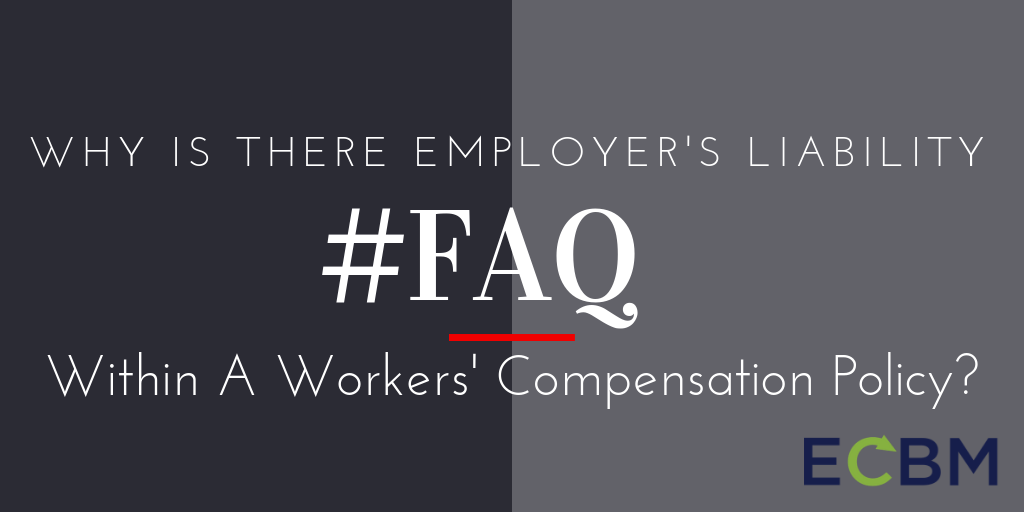
Workers compensation systems exist to take workplace injuries out of the courtroom and resolve those claims in a more cost effective way without worrying about fault. Many employers purchase their workers compensation policies simply as a matter of necessity. But these policies cover more than just the statutory workers compensation scheme.
What Is A Workers' Compensation Policy?
The typical workers compensation policy has three parts. The first part of the policy covers statutory workers compensation in the states where a company has employees. This policy will match the requirements of each state and will pay out benefits according to the state’s method for determining workers compensation payouts. This is what most people think of when they think of their workers compensation policies.
Employers Liability
The second part of the policy is known as employers liability. Employers liability covers lawsuits that might arise out of injury to an employee but that would not be covered or barred by a state workers compensation statute. There are several examples of what this type of lawsuit might entail. The typical example involves a family member suffering damages as the result of an injury to an employee. Other examples include:
- consequential bodily injury, where a family member suffers an injury as a result of the employee’s injury,
- third party over actions, where an employer is sued by a second company after the second company is sued by an injury to the employer’s employee, AND
- dual capacity suits, where an employer is sued by an injured employee in a capacity other than as an employer – this situation might arise where an employee is injured using a product manufactured by the employer.
Unlike workers compensation, which operates on a no fault basis, lawsuits that would fall under employers liability typically involve allegations of negligence. This means those bringing the lawsuit will have to prove that the employer breached the standard of care they owed to the employee in some fashion and this led to the damages for which the plaintiff seeks redress.
What Employers Liability Covers
Employers liability coverage will cover both the costs of defending the lawsuit and any potential settlement or judgment against the employer. While employers liability claims are rare in comparison to workers compensation claims, they can be expensive in the right circumstances, so it is always best to review your coverage and make sure it is sufficient. Excess or umbrella liability policies will often cover employers liability in addition to general and automobile liability. Active workplace safety measures are a great way of protecting yourself from claims of this nature occurring in the first place and also improve your likelihood of success should a case go to trial. Companies should review their workplace safety policies, ensure they are up to date, and make sure training in those policies proceed as necessary.
